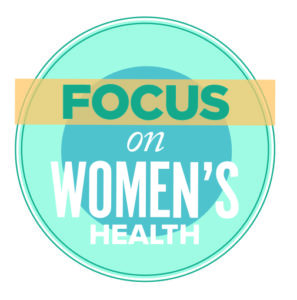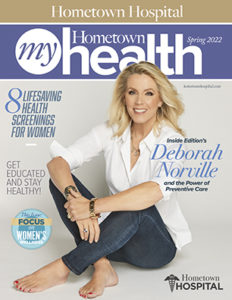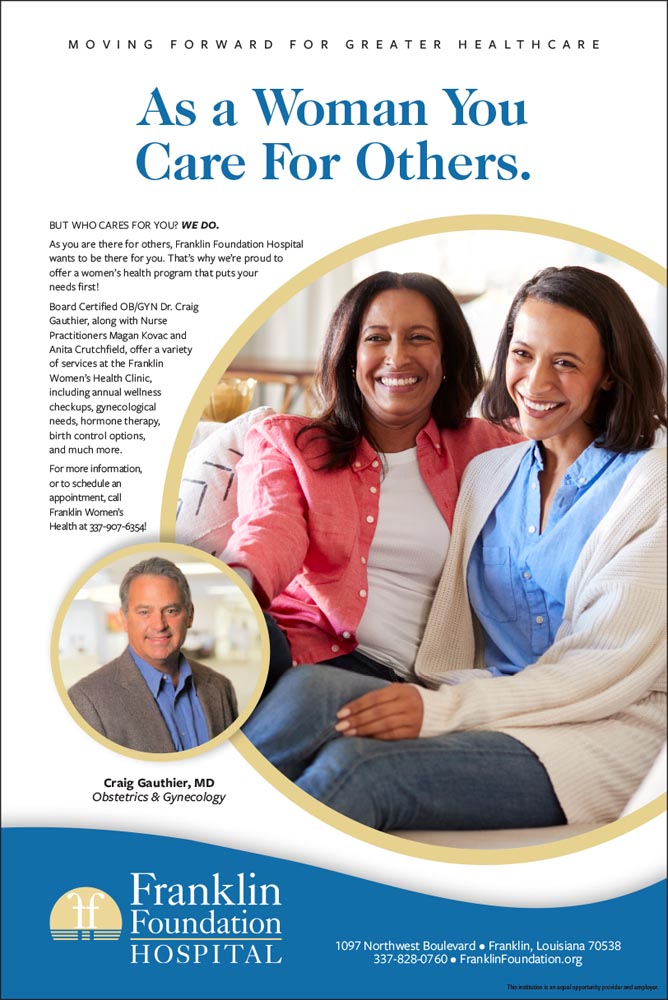
 For every woman, now is the best time to get up-to-date with essential health screenings.
For every woman, now is the best time to get up-to-date with essential health screenings.
ARE YOU BEHIND ON YOUR REGULAR HEALTH SCREENINGS?
Chances are pretty good that you are. Before COVID, about 40 percent of Americans were skipping their recommended medical tests or treatments. Then, in 2020, an additional 32 percent of Americans canceled their annual
wellness checkups and screenings, mainly because of COVID.
Research has proven that health screenings increase life expectancy. So think of preventive exams and tests as an investment in your future health. An annual physical will get you caught up on many of your health screenings. A yearly women’s well-visit will provide the gynecological and breast exams that can detect cancer and many other conditions in their early stages.
1. Get your blood pressure checked
You may be surprised to know that heart disease is still the number one health concern for women. Nearly half of adults in the U.S. (47 percent) have high blood pressure, also known as hypertension, which can lead to heart disease and many other health issues. Anyone over the age of 40 should have their blood pressure checked at least once a year and more often if they already have hypertension, a blood pressure reading of 130/80 or higher.
2. Know your cholesterol levels
While we are talking about heart health, it is also important to have your cholesterol levels checked. All it takes is a simple blood test that measures your total cholesterol, “bad” cholesterol (LDL), “good” cholesterol (HDL) and triglycerides (blood fat). Talk to your primary care provider about when to start and how often to check your cholesterol levels.
3. Schedule that mammogram
A mammogram is an X-ray picture of the breast. It is the best way to detect early signs of breast cancer. The entire procedure takes less than 30 minutes, and that half hour could save your life. Since 1989, mammograms have prevented more than half a million deaths in the U.S. Starting at age 45, every woman should have an annual mammogram until age 54. Women 55 and older can switch to a mammogram every other year or continue with an annual exam. Women between the age of 40 and 44 have the option to start screening once a year and even sooner if they have a greater risk for breast cancer. Talk to your primary care provider about your risks.
4. Get checked for osteoporosis
Osteoporosis is a disease that thins and weakens the bones. About 68 percent of the 44 million Americans at risk for osteoporosis are women. A bone density test is the only way to diagnose osteoporosis. This safe, painless, non-invasive procedure uses a special X-ray machine to determine the strength and thickness of your bones and only takes about 10 minutes to perform. Women should have this test starting at age 65 or during menopause if they are at high risk. Talk with your medical provider to discuss your risk factors.
5. Remember your Pap/HPV test
A Pap test is the best way to check for cervical cancer. The test detects precancerous or cancerous cells in the cervix and can be performed during a routine gynecological exam. The Pap test may be combined with a test for the human papillomavirus (HPV), which can cause cervical cancer. In general, you should start having a Pap test at age 21. You and your primary care provider should decide when to begin Pap testing and how often you should have the test.
6. Make that colonoscopy appointment
Colorectal cancer is the third most commonly diagnosed cancer in women. The best way to check for colorectal cancer is a colonoscopy, which detects changes in the large intestine and rectum. During the screening, polyps and other abnormal tissues can be removed before they develop into cancers. Adults age 45 to 75 with an average risk of colorectal cancer should have a colonoscopy at least every 10 years or more often if they have a higher risk. Most insurance plans as well as Medicare help pay for colorectal cancer screenings.
7. Remember your blood glucose test
This test measures the amount of sugar, or glucose, in your blood to check for diabetes. Diabetes occurs when the body loses its ability to break down sugar, which can lead to many health issues for both women and men. For example, diabetes increases the risk of heart disease by about four times in women, but only two times in men. The test requires that you fast for eight hours before a small sample of blood is taken. The American Diabetes Association recommends screening for everyone age 45 or older and for anyone with a high risk for diabetes. Risk factors include high blood pressure, high cholesterol levels, being overweight or obese, a history of diabetes or if you developed diabetes when pregnant.
8. Get screened for skin cancer
Skin cancer is the most common type of cancer, but it is also the most treatable. If you have fair skin or have spent lots of time in the sun, a regular skin cancer screening is the best way to find the early signs of skin cancer. You can also perform a self-exam. Watch for any changes in the color, shape or size of your skin markings, such as moles and freckles. Also look for any new spots on your skin or any itching or bleeding. If you see anything unusual, make an appointment immediately with a dermatologist.
Sources: Mayo Clinic, American Diabetes Association, WebMD
Marketing Application
Women’s health is a relevant healthcare topic at any point during the year. Therefore, it is appropriate to raise awareness about the wide range of women’s health services available through your hospital and clinics, such as mammography, cancer screenings, pre-natal care and more. OB/GYNs, internal and family medicine providers and diagnostic imaging specialists are appropriate voices to promote this awareness. Effective marketing tools might include social media, digital media and print, in tandem with a strong call to action to learn more about and to schedule an appointment with a local provider or women’s health specialist.
About Brentwood Communications, Inc.
Brentwood Communications specializes in healthcare marketing. Through our monthly AdBank subscription service, thousands of field-tested marketing materials — including content related to women’s health — are available and can be easily customized to reflect your hospital or clinic’s existing brand.
Click here to discover more about AdBank and how Brentwood Communications specializes in providing marketing support for non-urban hospitals.

Brentwood Communications also helps hospitals stay in touch with their communities through an informative and cost-effective digital and printed magazine called My Hometown Health, a powerful tool to help promote better health and raise awareness of key services available at the hospital. Inside Edition’s Deborah Norville was featured in our recent Spring 2022 magazine, which focuses on women’s health. Deborah talks openly about her thyroid cancer and the power of preventive care.
Brentwood Communications makes creating and publishing a customized, local community health magazine easy and convenient. Click here to learn more, or contact us by email.





